Man made nationalism? Chauvinistic language on news panel debates
The Operation Sindoor triggered intense panel debates on Indian news media. The news channels have been peeling off the layers and filters of anger and rage. In strongly asserting to condemn state-led terrorism by Pakistan, news channels crossed the limits of objectivity and decency of language, thereby exposing the dominance of masculinity in public discourse.
This piece asserts certain aspects, firstly, the use of sexist and misogynistic language by one of the guests during a panel debate on a news channel to justify his anger. There is a need to carefully analyse how the duty to the nation is wrongly expressed through a reactionary, misogynistic language. Secondly, how do news channels give space to guests during a panel discussion, which brings more damage to the minds of the masses?
During a conflict situation, it is necessary to be cautious about the words and manner being reported in the news media. The role of news anchors and panel members is of higher expectation as their manner of debate on the specific issue shapes sensitive discourses. War-like situations cannot be used as an opportunity to be a war of vulgar words in any decent society.
Misogynistic language on panel debates
Misogynistic language is a feudal patriarchal construction that reinforces women-centric abuse to target one’s prestige and honour. Indecent and disrespectful language cannot be acceptable either by the media or by the guests appearing for the panel debate. The audience is always influenced by media mannerism, which gets translated into the way media consumers behave.
The following clips were such disturbing instances being circulated among the masses through reels and social media platforms, constructing chauvinistic nationalism. Keeping the potential of social media platforms in mind, it is necessary to analyse the misogyny being circulated among people in sensitive situations.
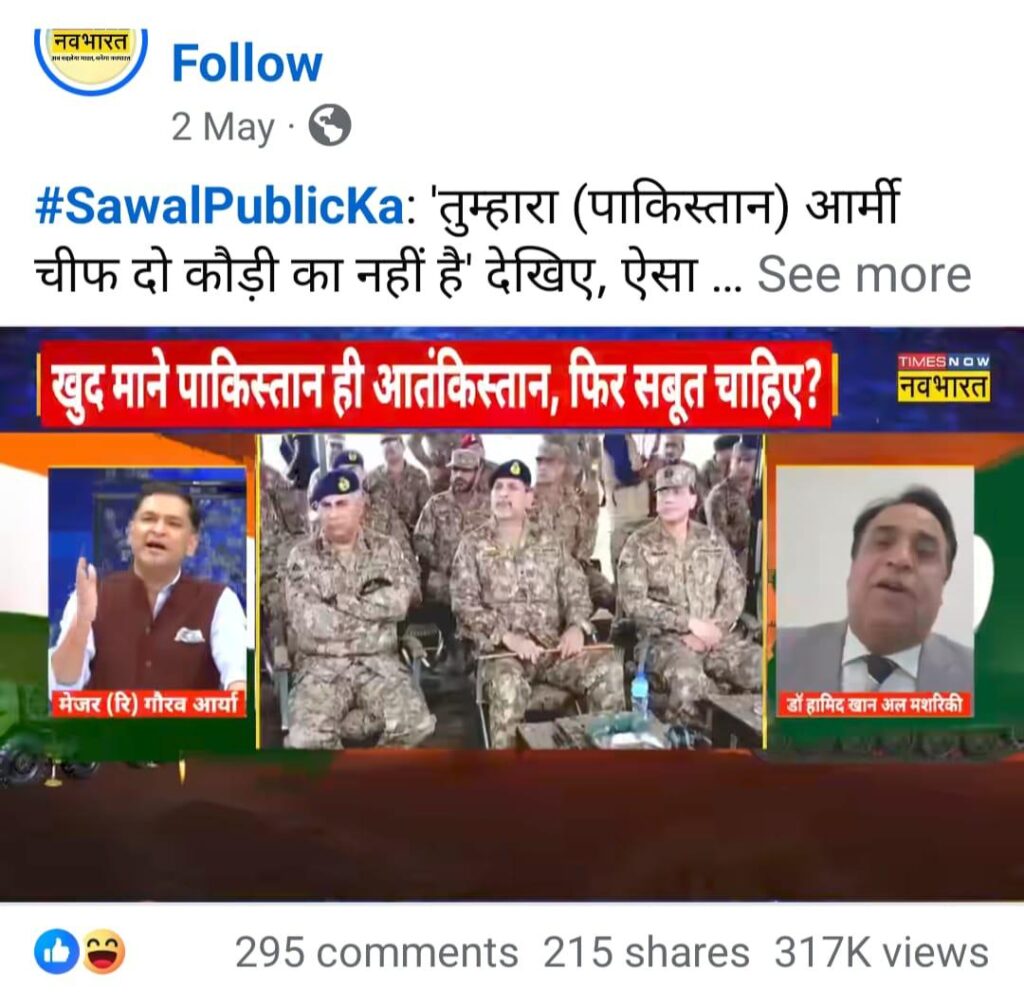
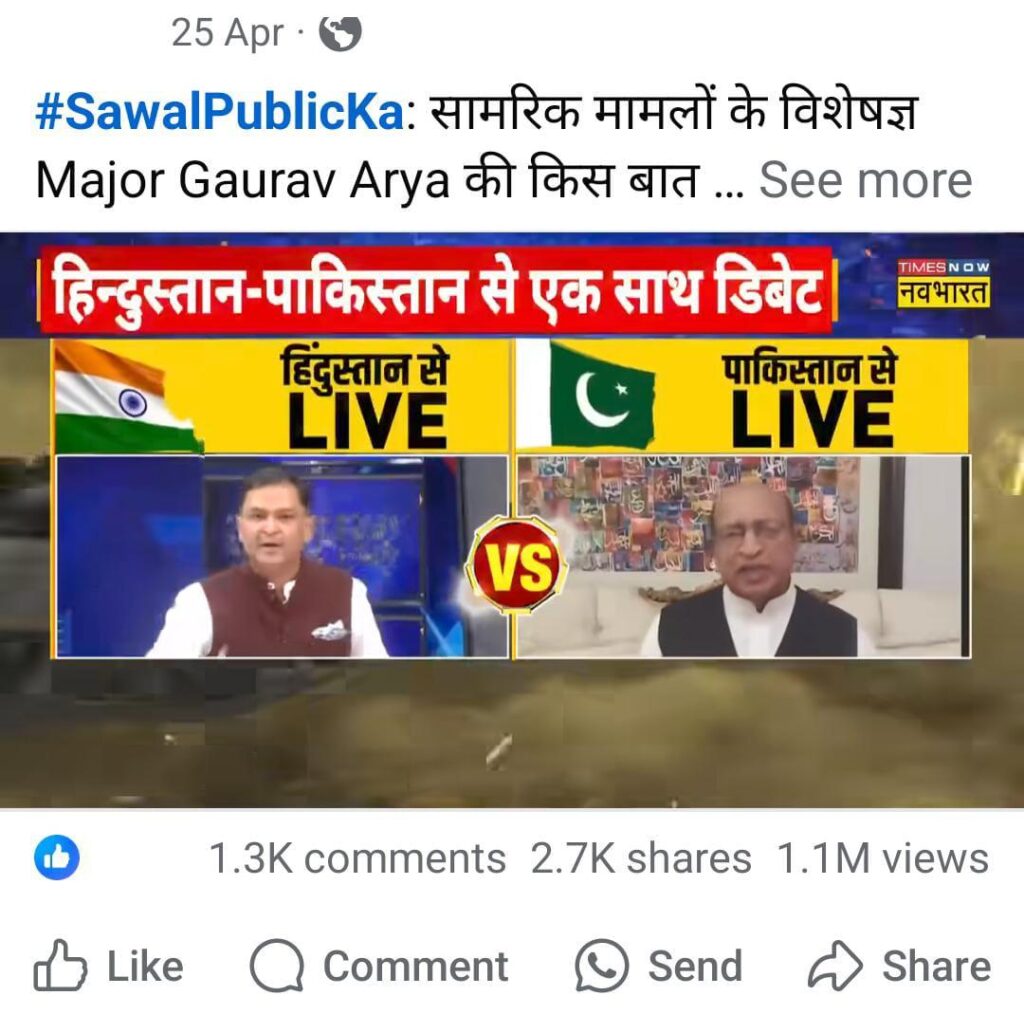
| Engagement | Image 1 (left) | Image 2 (Right) |
|---|---|---|
| Comments | 295 | 1.3 K |
| Shares | 215 | 2.7K |
| Views | 317K | 1.1 M |
Guest said:
Noida me ‘nachwaoongaa,
(I’ll make them dance in Noida’)
Lehenga pehna kar idhar hi times now ke studio me mujra karwaaonga use”
(I’ll make him wear a skirt to dance in Times Now studio)
In the above two bits of sentences, dance has been used as a feudal patriarchal category, placing women’s dance performance for their male chauvinistic and sexist entertainment. Certainly reinforcing the objectification of women.
These statements were said by one of the guests on a prominent news channel. One being on air on a live television show does bring value and privilege to the person. Taking advantage of being on a panel discussion on a news channel, the person probably considered himself a celebrity who would not be questioned for use of misogynistic language. Possibly, the vast reach suggests that the male chauvinistic audience also were interested in such outrageous reactions of patriotism in misogynistic language, while objectifying women was ignored or considered casual.
The man-made language
On one side, it is about treating one’s nation equivalent to a woman with honor, a mother – referring to it as ‘motherland’. On the other hand, it is about treating the other nation as a woman to be looked down upon or consumed, commodifying and objectifying it as dancers. This suggests that women are the center of these discourses of man made nationalism. The guest might be ignorantly proud of his misogynistic attitude, but the behavior is problematic in reinforcing prejudices against women.
Benedict Anderson (1991) in his prominent work ‘Imagined Communities: Reflections on the Origin and Spread of Nationalism’ defined nation as the product of modern nationalism and an imagined political community. Unfortunately, women are oriented towards conventional social objectives rather than political objectives, so that nationalism is constructed as a male project, writes Meera Kosambi (2007). The same imagined political community has constructed nationalism by occluding women. Ironically, honour of the motherland does not assimilate honour of women with the same ethos.
The feudal–patriarchal division validates and places women at the least recognized margin of worth and prestige. As a dance performer, to be subjected to the male gaze is the most denigrating description for a woman as an object in society. How does targeting and bashing require ‘women-centric’ abusive connotations to condemn terrorist activities?
I am concerned about why men are unable and incapable of inventing the right words to condemn or target without using ‘women-centric’ abusive words and connotations. The disappointment meets further lows while knowing that the panel is anchored by a woman who could not even shut up a chauvinistic mouth for the choice of their words.
Dale Spender (1980) writes in her book ‘Man made language’ that language has developed over centuries to primarily favour men, prioritising and serving their needs and interests. In addition, I mention here that the construction of language has been intensely patriarchal and that men have practiced their privilege of ‘speaking’ in society and have wrongly encouraged themselves to invent women-centric abusive words. Ironically, the ‘mother-tongue’ has been deteriorated by abusive words to reinforce male chauvinism. This happens in daily usage of cuss words too, like ‘b***n c**d’ and ‘m**** c**d’ signifying the parlance that men are the protectors of women and their manhood is in protecting their women from other men, as if women were owned by men.
The idealism of discipline, mannerism, and gallantry associated with the guest’s profile must not allow using sexist and misogynistic words anywhere, not even on news channels, to vent his rage against the enemy. The threat is that the mass media discourses also reinforce these behaviours towards women among common people, thereby aggravating social problems.
Why do news channels entertain provocative guests?
News channels take advantage of the dramatization of news with a provocative guest who could flare up the discussion. Bringing provocative guests might help news channels to increase their engagement with the audience. However, such discourses strengthen the existing social biases and prejudices.
This model of dramatization, backed by cultivating professional guest relations, could bring dynamic energy to the channels as a brand. However, subject experts having excellence like a professor, academic, or relevant practitioner who commands the subject knowledge are rarely preferred to be part of a panel discussion. The reason for not considering them is that they are too boring and possibly lengthy, patient, and calm. Viewers would be disinterested in such conversations with a spirit of enquiry.
Crushing the code of conduct with misogyny, sexist, and obscene language during the live panel discussion with highly charged reactions has lowered the standard of the panel debates.
The consequent difficulty is to invoke a conscious understanding of language to address the desired and contextual discourse. Choice of correct words with high standards of human manners, dignity, and decency must not be a rarity in the era that is witnessing excellent, meaningful communication practices for mass communication.
This piece is an effort to invoke the required understanding that misogyny and sexism are based on gender based power relations. This socialization shapes one’s experience and exposure, which wrongly gets louder validation during the chauvinistic media panel discussion and debates. Also, the medium or media need to correct the parameters to cultivate improved practices for panel discussions on news channels. The media has accountability for the masses, as behavioural traits and habits are cultivated through media influence too. News channels should not be controversy mongers and platforms to promote misogyny. Media must demonstrate a respectful standard of language in various formats meant for the opinion-building process for the masses.
References
- Anderson, Benedict (19991) Imagined Communities: Reflections on the Origin and Spread of Nationalism. Verso. USA.
- Kosambi, Meera (2007) Crossing Thresholds: Feminist Essays in Social History. Permanent Black. India.
- Spender, Dale (1980) Man made language. Routledge & Kegan Paul. London.


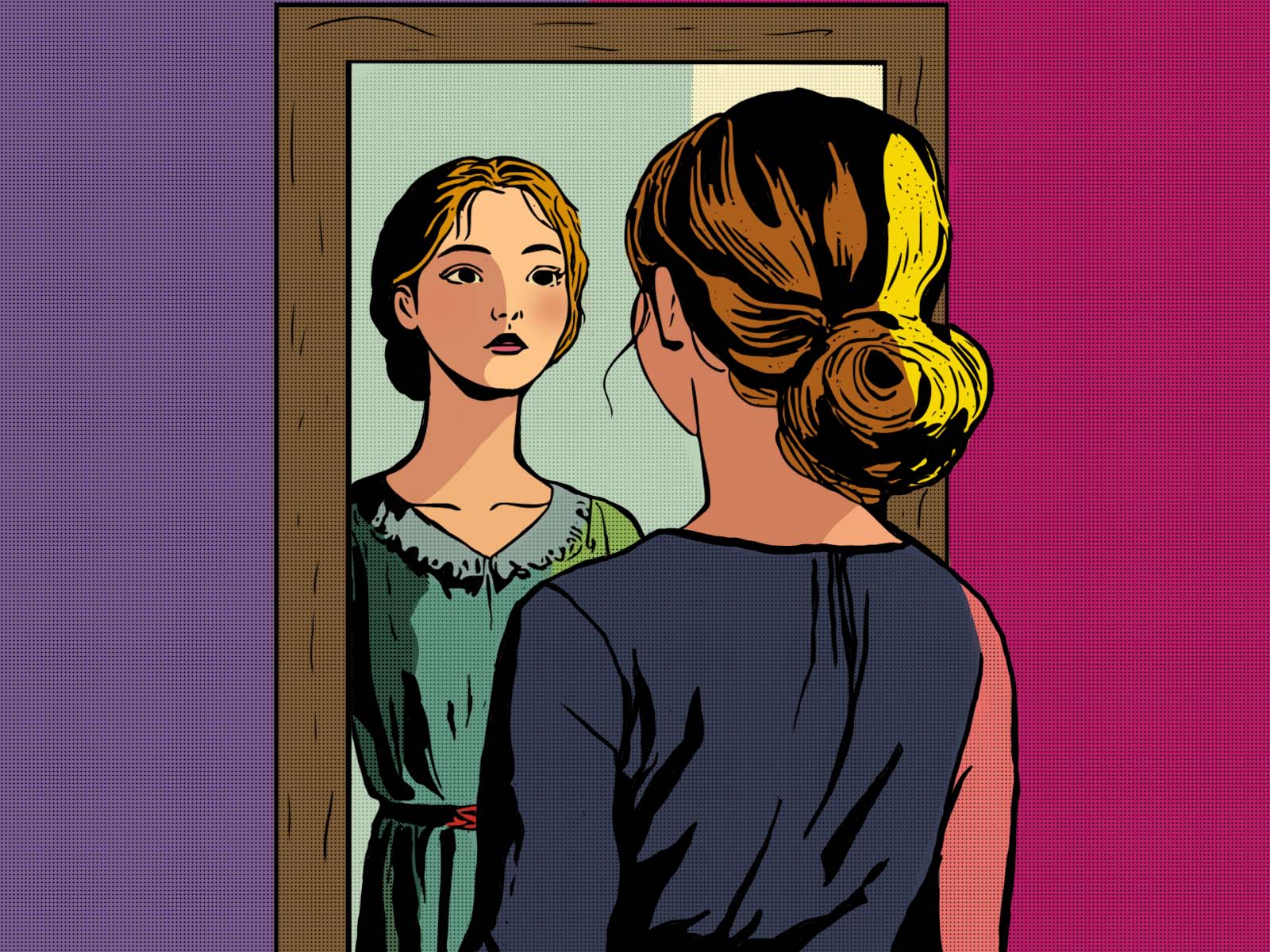
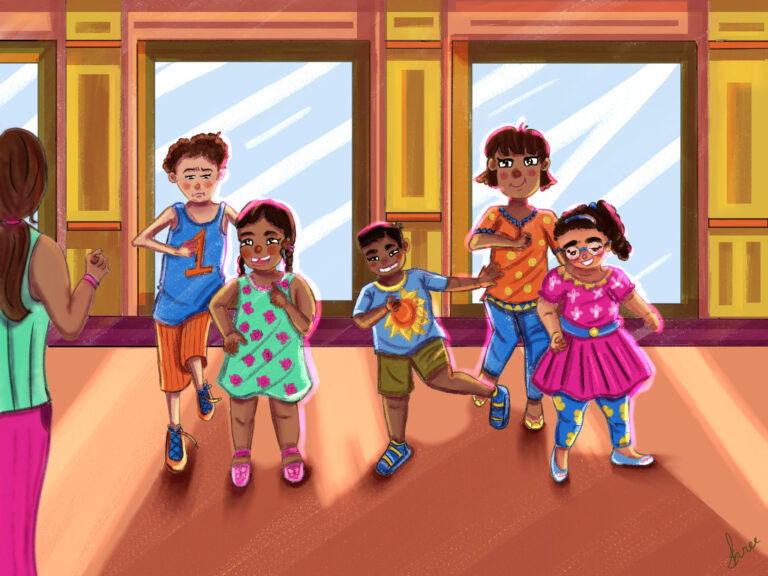
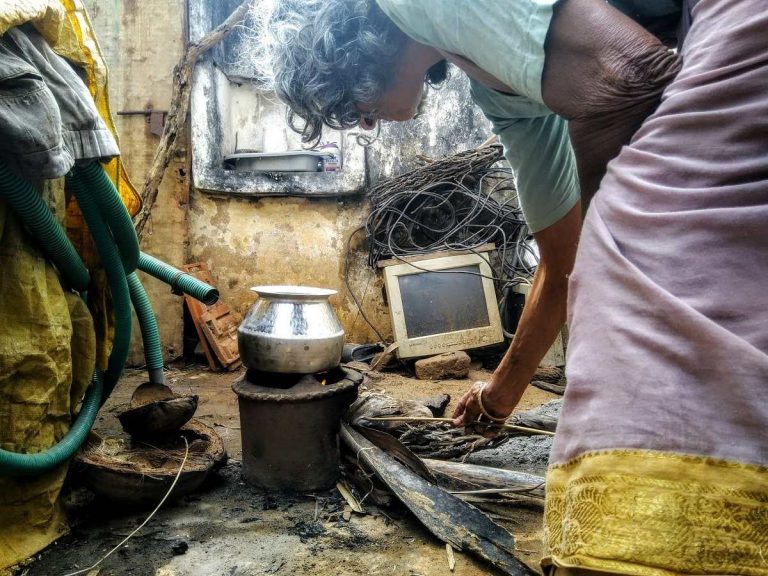
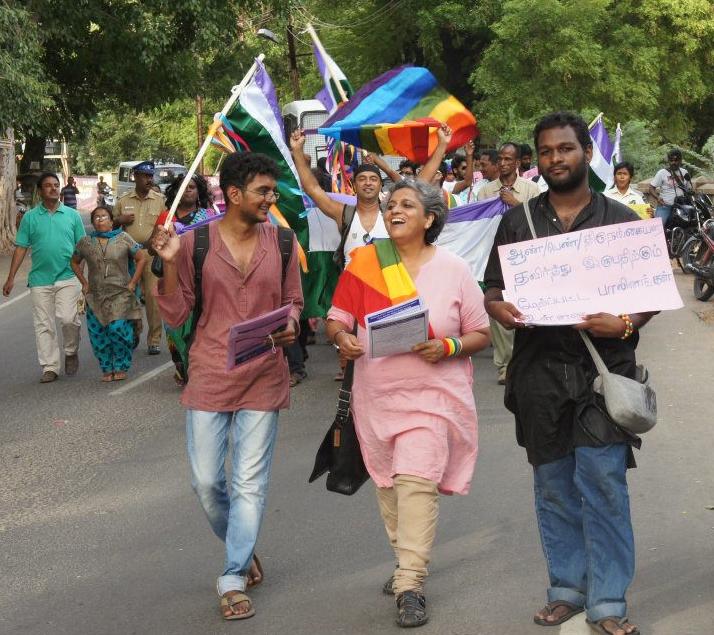
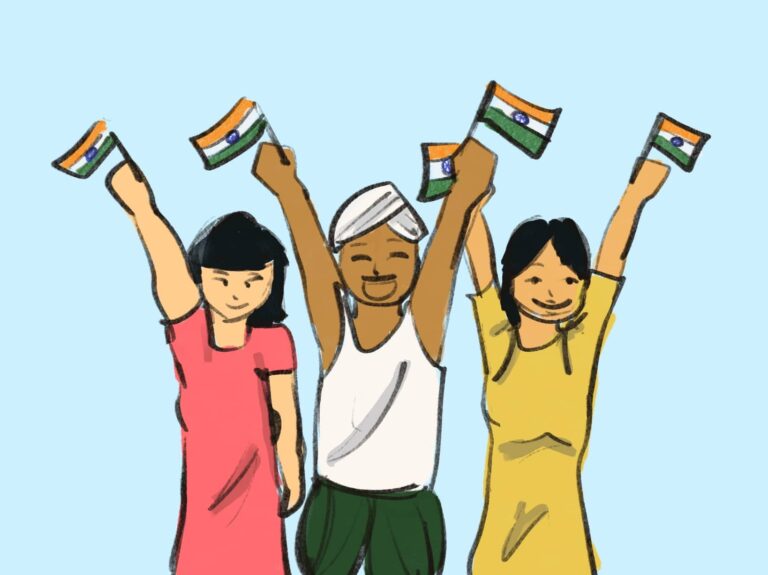
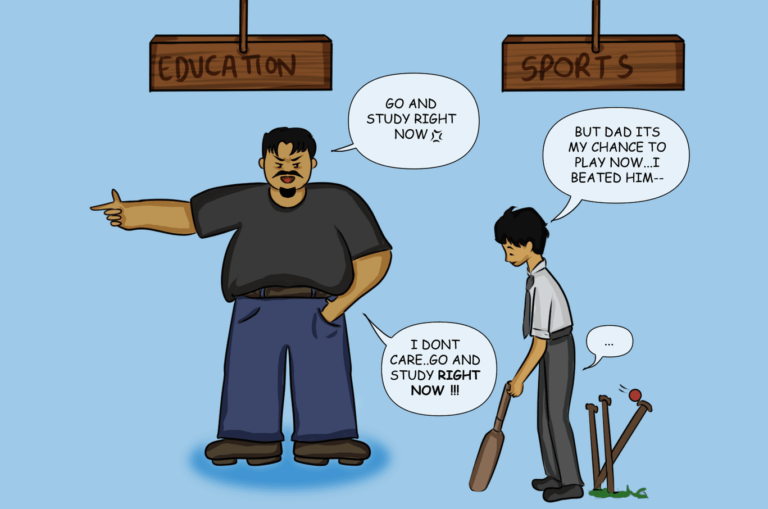
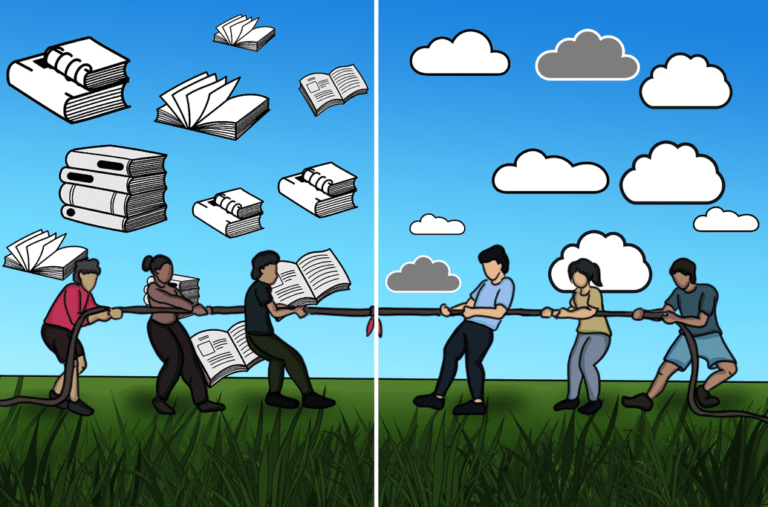
A well articulated article